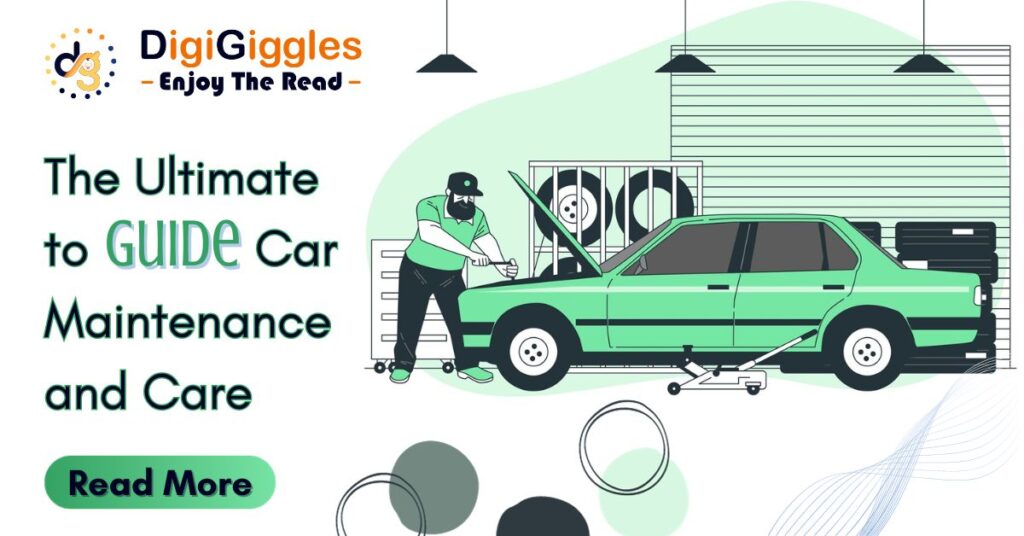
Introduction
Owning a car comes with the responsibility of ensuring it remains in optimal condition. Regular maintenance and proper care not only extend the lifespan of your vehicle but also contribute to a safer and more enjoyable driving experience. In this comprehensive guide, we will delve into the essential aspects of car maintenance and care, covering everything from routine checks to addressing common issues and proactively preserving your vehicle’s health.
Routine Inspections and Checks
Regular inspections are the foundation of effective car maintenance. These routine checks help identify potential issues early on, preventing them from escalating into more significant problems. Focus on the following key areas:
Engine Oil:
Regularly check the oil level and color. Change the oil as per the manufacturer’s recommendations to ensure optimal engine performance.
Tire Pressure and Tread:
Maintain the recommended tire pressure and inspect the tread depth. Rotate tires regularly.
Brake System:
Check brake fluid levels and the condition of brake pads and discs. Address any unusual sounds or sensations when braking.
Battery Health:
Inspect the battery terminals for corrosion, and check the battery’s voltage. Replace or get the battery charged if it seems to become weak.
Fluid Levels:
Monitor levels of coolant, transmission fluid, power steering fluid, and windshield washer fluid. Top up as needed.
Scheduled Maintenance Tasks
In addition to routine inspections, adhere to your car’s scheduled maintenance tasks outlined in the owner’s manual. These typically include:
Air Filter Replacement:
Change the air filter regularly to ensure optimal fuel efficiency and engine performance.
Spark Plug Replacement:
Replace spark plugs as recommended by the manufacturer (available in the user manual or online) to maintain smooth engine operation and fuel efficiency.
Timing Belt Inspection:
Check the timing belt for signs of wear and replace it at the manufacturer-recommended intervals.
Cooling System Service:
Flush and refill the cooling system periodically to prevent overheating and maintain engine temperature.
Addressing Common Issues
Even with regular maintenance, cars may encounter common issues that require attention:
Brake Issues:
Address squeaky brakes, soft brake pedals, or any vibrations during braking promptly. These could indicate brake system problems.
Strange Noises:
Unusual sounds like squeaks, rattles or clunks may indicate issues with the suspension, exhaust or other components. Investigate and resolve promptly.
Warning Lights:
Take warning lights on the dashboard seriously. Consult the owner’s manual or seek professional help to diagnose and address the issue.
Fluid Leaks:
Address any fluid leaks promptly, whether it’s oil, coolant, or brake fluid. Puddles under the car can signal underlying problems.
Proactive Preservation Tips
Preserving your car’s aesthetics and overall condition is as crucial as maintaining its mechanical components. Consider these tips:
Washing and Waxing:
Regularly wash and wax your car to protect the paint from contaminants, UV rays and environmental damage.
Interior Care:
Keep the interior clean and use protective measures like seat covers to prevent wear and tear.
Parking Considerations:
Park in shaded areas whenever possible to minimize exposure to the sun. If parking outdoors for extended periods, use a car cover.
Regular Driving:
Regularly drive your car, even if it’s just a short distance. This helps prevent issues like a dead battery and keeps various components lubricated.
Garage Storage:
If available, store your car in a garage, to shield it from the external environment, reducing the impact of weather and temperature extremes
Choosing a Trusted Mechanic
While some car maintenance tasks can be handled independently, having a trusted mechanic is invaluable for more complex issues and professional inspections. Consider these tips:
Research and Recommendations:
Research local mechanics, read reviews and seek recommendations from friends or family to find a reputable service provider.
Certifications and Experience:
Choose a mechanic with relevant certifications and experience working on your car’s make and model. Although experience matters more, certifications are like the cherry on top of the cake.
Transparent Communication:
Opt for a mechanic who communicates transparently, explaining issues clearly and providing estimates before starting any work.
Warranty and Guarantees:
Inquire about warranties or guarantees on parts and services to ensure confidence in the quality of work.
The Road Ahead
The ultimate guide to car maintenance and care involves a combination of routine inspections, scheduled maintenance tasks, addressing common issues promptly, and proactive preservation efforts. By staying vigilant and proactive, you not only ensure the longevity and reliability of your vehicle but also contribute to a safer and more enjoyable driving experience. Whether you handle basic maintenance tasks yourself or rely on a trusted mechanic, the effort invested in caring for your car pays off in the form of increased performance, longevity, and overall satisfaction with your vehicle ownership experience.